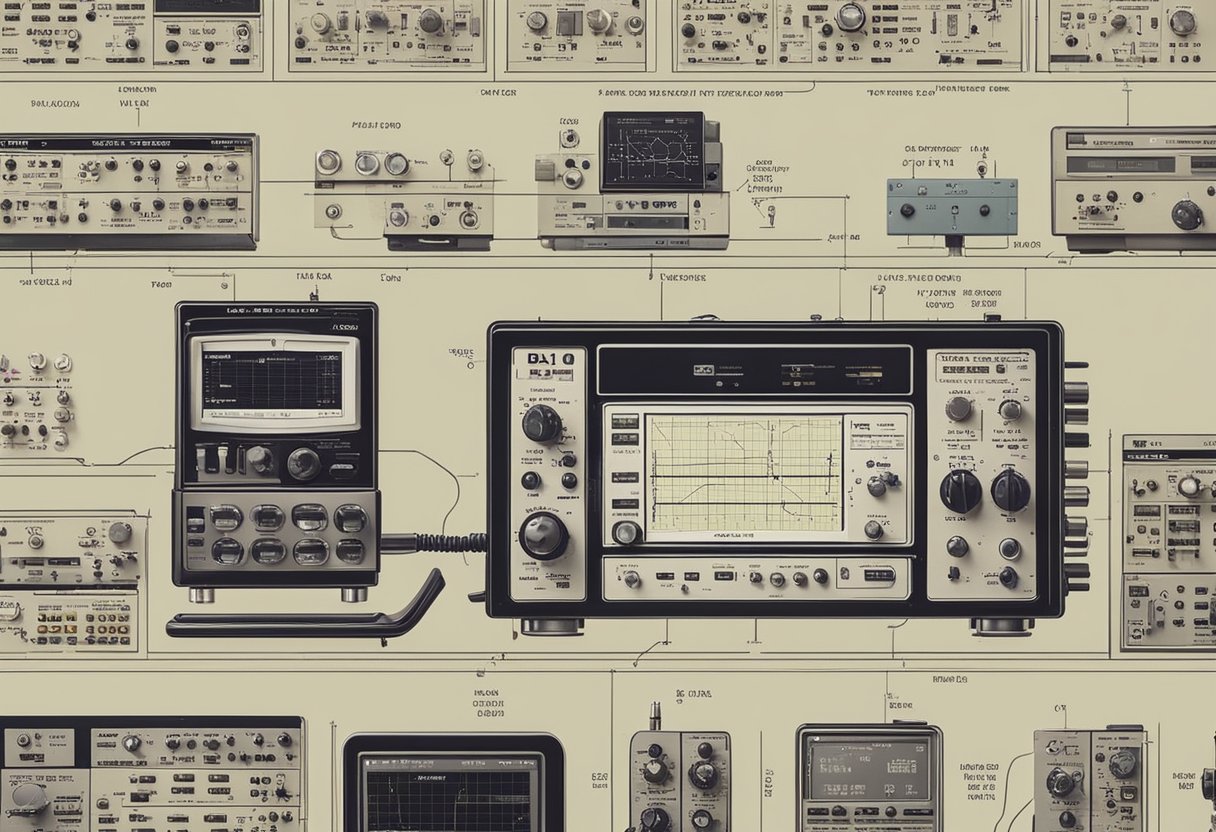The difficulty level of the Ham Radio test can be a point of concern for many aspiring amateur radio operators. This examination, which is regulated by the Federal Communications Commission (FCC) in the United States, is designed to assess the candidate’s understanding of key concepts required for responsible radio operation. To earn an amateur radio license, applicants must pass this test, which is comprehensive and covers various aspects of radio theory, operating practices, and electronics knowledge.


Preparation for the Ham Radio test is essential, as the exam encompasses a wide range of technical and regulatory topics. Individuals often use a combination of study materials and practice exams to familiarize themselves with the questions they may encounter. While some people successfully prepare for the exam within a few weeks of dedicated study, the time investment can vary based on the individual’s background and familiarity with the subject matter. The level of difficulty experienced by test-takers largely depends on their preparation and understanding of the content covered by the test.
Key Takeaways
- Passing the Ham Radio test is a requirement for obtaining an amateur radio license.
- A thorough understanding of radio theory, operating procedures, and FCC regulations is essential.
- Dedicated study and use of practice resources can significantly ease the test-taking experience.
Understanding the Ham Radio Licensing Process


The Ham Radio licensing process is a structured pathway set by the Federal Communications Commission (FCC) to ensure that amateur radio operators possess the necessary knowledge to operate their equipment legally and safely. The process distinguishes between different license classes, each with its own exam, to cater to the varying levels of expertise and access to radio frequencies.
FCC Requirements
To obtain any class of amateur radio license, applicants must provide a valid form of identification, which could be a Social Security Number or a Taxpayer Identification Number. The FCC maintains a systematic approach to ensure that all operators are accountable and that the valuable radio spectrum is used responsibly by licensed individuals.
Different License Classes
There are three classes of amateur radio licenses in the United States:
- Technician Class (entry-level): This class requires passing a 35-question exam. It provides access to all amateur radio frequencies above 30 MHz and allows for basic operations on certain HF bands with restrictions.
- General Class: After earning the Technician license, one can upgrade to General Class by passing another 35-question exam. This license extends operating privileges to most HF bands, facilitating international communications.
- Amateur Extra Class: The highest level of licensing is the Extra Class, which demands a more comprehensive understanding of radio theory. Passing the 50-question exam grants full operating privileges on all bands and frequencies allocated to amateur radio.
Ham Radio Exam Overview
The exams for each license class focus on different aspects of amateur radio:
- Technician Class exams cover the basics of regulations, operating practices, and basic electronics theory.
- General Class exams delve deeper into radio theory, communications techniques, and regulations for HF band use.
- Extra Class exams test advanced technical knowledge, including complex electronics theory and detailed FCC regulations.
Exams are multiple-choice and administered by accredited Volunteer Examiner Coordinators. Passing requires a minimum score of 74%. Resources such as the Ham Radio Prep guide can be valuable study aids to prepare for these exams.
Exam Preparation Strategies


Preparing for the ham radio test requires careful selection of study materials, disciplined practice with exams, and effective use of online resources.
Study Materials
The ARRL Extra Class License Manual is a comprehensive book that covers all the topics required for the exam. It provides explanations and background information crucial for understanding the concepts, not just memorizing answers. Students should ensure they are using the most current edition to stay up-to-date with the latest FCC regulations.
Practice Exams
Taking practice exams is essential in gauging one’s readiness for the actual test. Platforms like hamstudy.org offer a multitude of questions that simulate the format and difficulty of the real exam. Consistent scoring above 80% on these practice tests can be a good indicator of potential success on the exam day.
Using Online Resources
Online study tools provide interactive ways to reinforce learning. HamStudy.org offers a variety of study guides and flashcards which are effective in retaining complex information. Moreover, online forums can serve as valuable online resources where aspiring ham radio operators can gather tips from experienced members.
Exam Details and Structure
The overall composition of the ham radio test is governed by specific guidelines which define its structure, including the question pool and the scoring system. Each examination is carefully designed to assess a candidate’s knowledge and understanding of ham radio operations and regulations.
Question Bank
The question bank for ham radio tests is publicly available and contains a finite set of multiple-choice questions which are randomly selected during each exam. For the Technician exam, it typically features questions from various subelements and topic groups. An individual studying for their license can freely review these questions in preparation for the test.
Exam Format
The test format is consistent across all three license levels: Technician, General, and Extra. Each exam is comprised of multiple-choice questions, with only one correct answer for each. The Technician exam consists of 35 questions, the General also 35, and the Extra class has 50 questions. Examinees must mark their answers on a provided answer sheet or, in some cases, on a computer when taking an electronically administered exam.
Scoring and Passing Criteria
A passing score for the ham radio test necessitates correctly answering a set percentage of the total questions. For the Technician and General class licenses, candidates must answer at least 26 out of 35 questions correctly, translating to a passing score of 74%. The Extra class license requires a higher number of correct answers due to the larger question pool. Individuals may take practice exams to gauge their readiness and identify areas needing further study. Achieving a perfect score is not necessary, but a solid understanding of the material increases the likelihood of passing.
Post-Exam Procedures and Advancements
After successfully passing the Technician Class exam, the journey into amateur radio continues with the assignment of a call sign and access to various operating privileges across radio frequencies. These initial steps open the door to a world of communication possibilities as new licensees start to explore the VHF bands and beyond.
Obtaining Your Call Sign
Once an individual passes the Technician Class exam, the Federal Communications Commission (FCC) processes the results. The examinee is then assigned a unique call sign, which serves as their official identifier on the airwaves. This call sign is typically issued within a week or two post-examination, but this can vary based on FCC processing times. New hams can check the FCC’s Universal Licensing System (ULS) database to see when their call sign has been granted.
Operating Privileges and Frequencies
The Technician Class license affords hams a variety of operating privileges, particularly in the VHF and UHF range. Licencees have the privilege to operate on all amateur frequencies above 30 MHz, including the popular 2-meter band. Specifically, they can explore frequencies with various modes of polarization and types of communication, including voice, digital, and even Morse code—although the latter is no longer a requirement for licensing.
As operators become more proficient, they may choose to study for and pass the General exam or the Amateur Extra exam to earn additional frequencies and privileges, which include HF band access. Advancements to these higher-class licenses unlock the full spectrum of amateur radio communication possibilities.
Frequently Asked Questions
In the arena of amateur radio, specific queries frequently arise concerning the testing process. These questions are crucial for potential licensees to understand the examination’s format, requirements, and preparation strategies.
What is the passing score required for the ham radio licensing examination?
For individuals aiming to obtain their ham radio license, a passing score is essential. The FCC Technician License, for instance, mandates a minimum of 26 correct answers out of 35 questions to pass the exam.
Can the ham radio examination be taken online, and if so, is it offered for free?
The ham radio examination can indeed be taken online through various accredited organizations. While some providers may offer the exam for free, others may require a fee to cover their costs.
What is the format and subject matter of the questions presented in the ham radio test?
The ham radio test questions are formatted as multiple-choice queries encompassing a range of topics including radio theory, regulations, and operating practices.
How much time should an individual allocate to studying before sitting for the ham radio exam?
Study time is subjective and varies per individual, however, providers suggest investing at least one hour per day in study mode which equates to approximately 150 questions. This helps reinforce knowledge and comfort with the exam material.
Are the questions and answers for the ham radio license test readily available for practice and preparation?
Yes, the questions and answers for the ham radio license test are publicly accessible. These resources are designed for candidates to practice and prepare effectively for their examination.
Does the ham radio license test permit the use of reference materials during the examination?
The use of reference materials during the ham radio license examination is not allowed. Candidates must rely on their knowledge and understanding of the material to pass the test.





